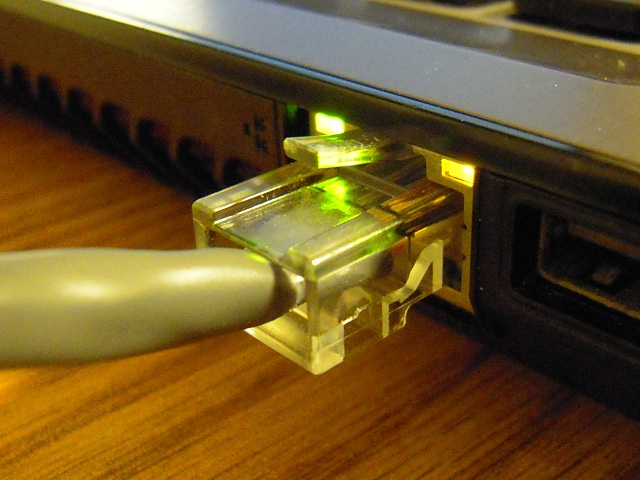ICT careers that will land you a job


Optical cabling has really come into prevalence during the past few years, and many telecom providers are currently working to expand their optical networks around the globe
Robert Ndlovu
This is a continuation from my previous article where I discussed some ICT careers such as Networking, VoIP, and Cyber Security.
I received dozens of text messages and e-mails from individuals seeking more information on which ICT career paths to pursue.
There is no one size fits all but one must do a career that will bring a meal on his table, one he or she enjoys doing. In this article we look into fiber optics, mobile application development and digital forensics.
Bear in mind that these careers do not exist in isolation but assume a good foundation of ICT. With fiber optics I am certain you have seen workers digging along highways and across streets, burying thick cables underground. The exercise continues as service providers seek to cover as much territory as they can afford.
What is the fuss? Well the future is pregnant with content packed and bandwidth demanding applications and services.
Fiber optics field
It is already here but the penetration is still very low but increasing by day. There are many types of jobs available in the fiber optics field, in many different types of organisations, which are unique, different and naturally require different educational backgrounds.
In each of these one has to undergo training and normally a certification to be market ready. Designers of fiber optic systems are usually electronic engineers familiar with digital communications systems. Fiber optic components are used like integrated circuits to develop these communications systems.
Probably the largest number of jobs are contractors and installers who build fiber optic networks. Installers must be skilled in the process of pulling cables, splicing and terminating, then testing them. This requires extensive knowledge and an understanding of how to interpret test results.
There are certifications available locally and in South Africa. One such internationally recognised course is the FOCT. Fibre optics technology assumes a very strong networking and mathematics background. If you see corporations investing billions of dollars into burying fibre optics across continents, across countries and then around metros, then you must know where the future of telecoms is heading.
One less obvious use of this kind of telecommunications link is in highway management systems like TOLL gates.
Yes, those systems must be online in real time and with full video capability. And very soon most key traffic intersections will have IP cameras under the eye of the traffic guys.
Mobile application development
More people have access to smart phones than they do with laptops and desktops. The case is even more visible in developing continents like Africa where the exponential surge of cellular phone usage has been closely followed by adoption and use of smart phones. What does this mean? This means there is already a serious demand for applications for end users that run basically on Android and iPhone and to some smaller extent Windows Phones.
With mobile banking this will cover previously unbanked people mainly in rural areas who will now access mobile money services, church chat interactions, sports news and profiles from their phones.
The biggest hindrance to the average job seeker or business seeking new opportunities is that they want quick returns. If you are looking for those kinds of careers then certainly these career paths described in here will frustrate you.
These are professional careers.
Learning Android can take up to a year to reach high class level. The writing is on the wall. The above assumes basic proficiency in computer programming.
Digital Forensics
This is the practice of collecting, analysing and reporting on digital data in a way that is legally admissible. In the non computer crime scene usually forensics analysts go on site and try to capture as much information and evidence as they can from the crime scene without tampering with the status of what they find on site.
Forensics is changing in the digital era, and our legal system is still catching up when it comes to properly employing digital evidence.
This is a very tricky and sticky situation. By the time law makers come up with laws and regulations pertaining to certain computer related issues, the technology will have leap-froged. Digital evidence is like the digital equivalent of a fingerprint.
Unlike fingerprints digital evidence is subjected to high level of scrutiny in courts. As if this was not enough there are very few experts in this field and hence it is naturally a lucrative career to pursue. Our own local law enforcement agents are at sea with most of the technologies at play here.
I am talking about highly trained and skilled personnel including civilians who know the synopsis of a digital forensic investigation for device seizure, data integrity preservation and presentation.
Again this kind of career assumes an advanced understanding of computer systems. There are certifications now available locally to become a Digital Forensic Investigator and Digital Forensic Analyst.
Naturally you must check the accreditation of the institutions with international certifying bodies before donating your money to some dubious college down town.
The job and role of a forensic analyst will include amongst other things recovery of data like documents, photos and e-mails from computer hard drives and other data storage devices, such as zip and flash drives that have been deleted, damaged or otherwise manipulated.
Zimbabwe hardly has any digital forensics labs. So this could mean and or imply setting up your own forensics laboratory using both free and expensive tools.
Strong linux skills are NOT an optional extra in this field. Most software tools are linux based. These labs must meet very high standard if they are to be reputable, reliable, and dependable and offer both data integrity preservation and security.
Penning off. I could not help but take note of how instant messaging commonly known as social media is redefining how people communicate and how they respond.
This is a huge challenge for any authority anywhere in world that finds itself at sea with changing trends in technology. This is a rich field for research and development.
What is critical nonetheless is that resources to train the new generation who use technology on a daily be put high on the agenda. This also implies training and upgrading lecturers on ICT.
Comments and questions most welcome on Robert Ndlovu [email protected]. Whatsapp: 077 600 2605.












Comments